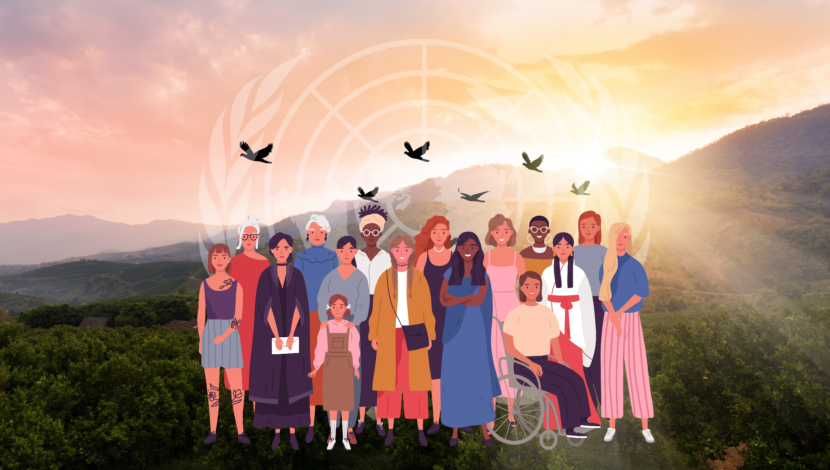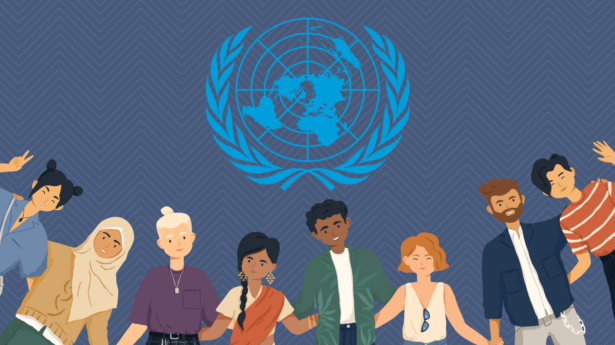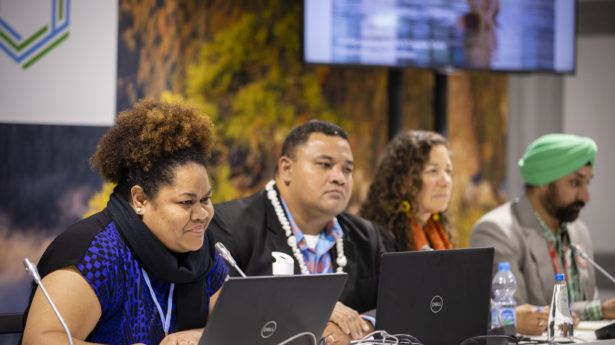The Unitarian Universalist Service Committee advances human rights through grassroots collaborations.
What is COP27 and Why Does It Matter?

By Deanna Johnson on November 7, 2022
What is COP27?
The Conference of Parties (COP) of the United Nations Framework Convention on Climate Change (UNFCCC) is where the 198 Parties — members of the UN who signed the Convention on Climate Change — meet to negotiate multilateral responses to climate change.
COP27 takes place in Egypt, a country not known for its environmentally sustainable practices or its current human rights record, two inextricably connected issues.
The conference provides space for organizations to connect, showcase their technologies, and raise their concerns with high-level officials.
The event also attracts protestors.
At COP26 in Glasgow, Scotland, 100,000 people marched in peaceful protest. Speeches from Indigenous representatives opened the rally, and activists like Vanessa Nakate from Uganda addressed the crowds at the end. This protest was one of several that took place during COP26 in Glasgow, and one of hundreds that took place at the same time around the globe.
Protests are a critical component of climate justice, but unapproved demonstrations won’t be permitted in a country that has all but outlawed protest assemblies.
The Agenda
The key theme of COP27 is implementation of pledges made during previous COP conferences.
According to the BBC, COP27 will be most focused on reducing emissions, adaptation to and preparation for the effects of climate change, and providing access to technology and funds to nations that will be most affected by those changes.
They also intend to pick up on topics that weren’t fully addressed at previous gatherings like establishing a global carbon market, reducing reliance on coal, and loss and damage financing.
Conversations About Loss and Damage
Small island developing states (SIDS) have been talking about the threats of climate change clearly and persuasively for at least 30 years, but haven’t been adequately heard or helped.
These nations are overwhelmingly burdened with the consequences of larger nations’ actions. When they are hit with those climate consequences, they need funds to recover from the loss and damage and to build back better.
Honestly addressing loss and damage is a crucial step towards climate justice. Thanks principally to the relentless advocacy of organizations from SIDS — like our partners in attendance — loss and damage is set to be a prominent topic during COP27.
#FreeAlaa
As Egypt hosts the world’s largest conference on climate change, the nation’s most famous political prisoner may die.
The pro-democracy, climate, and currently-incarcerated human rights activist Alaa Abd El-Fattah has been on a partial hunger strike for six months, consuming no more than a teaspoon of honey and some tea each day. Early last week, he quit accepting the honey and tea. On the first day of COP27, he told his family in a letter that he will refuse to drink water.
“I have decided to escalate, at the appropriate time, my struggle for my freedom and the freedom of all prisoners,” he wrote.
Abd El-Fattah will either be free by the end of COP27, or he will be dead.
Hundreds of dissenting voices have already been arrested in Egypt ahead of COP27, many of whom were demanding the release of Abd El-Fattah. Abd El-Fattah is one of an estimated 60,000 political prisoners who have been incarcerated since Abdel Fattah el-Sisi took office.
A nation’s treatment of human rights often mirrors its treatment of the environment.
#CleanUpCOP
It’s nearly impossible to see through the smog of greenwashing when it comes to COP27.
From the promotional video featuring actors who look like exaggerated caricatures of climate activists drinking from compostable straws and riding electric vehicles through the desert to Coca Cola’s huge sponsorship of COP27, the reality is that COP conferences leave huge carbon footprints without taking any serious steps toward climate justice while allowing nations and multinational corporations to look as if they’re doing as much as they can.
Without the ability to mobilize the civil society in the form of grassroots organizing, marching, free speech, and civil disobedience, it’s not likely that COP27 will lead to more than another opportunity for the powerful to be seen in the right place at the right time.
Still, there’s hope to #CleanUpCOP.
UUSC and partner ambitions for COP27
Representatives from UUSC and 12 of its partners from SIDS will be attending COP27 to advance a set of demands:
- ensure the active & meaningful participation of civil society from the Global south
- protect the human rights of civil society and their freedom of expression
- act swiftly to address the issue of climate-forced displacement.
Image credit: UUSC

